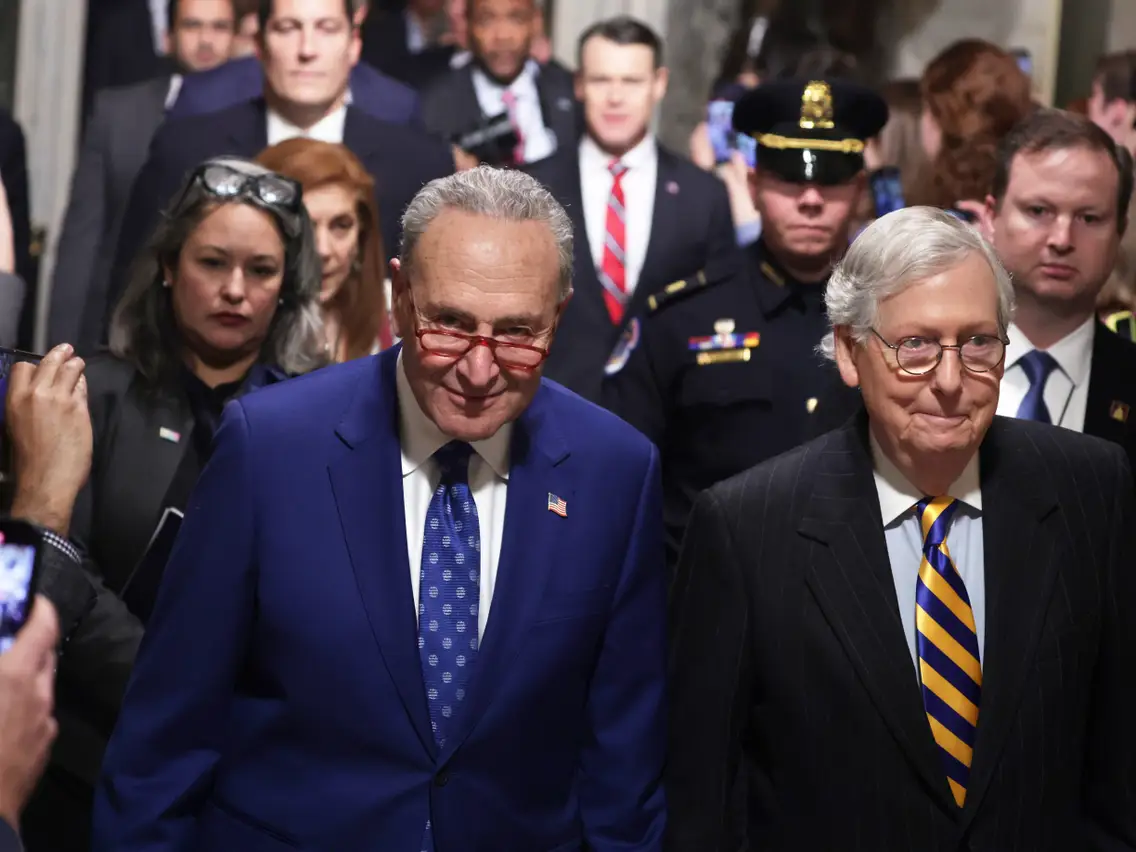The United States Senate has voted to approve a bipartisan deal that would increase the country’s debt ceiling, clearing the bill’s last major obstacle before it is presented to President Joe Biden for assent.
With Biden poised to sign the freshly passed law, Thursday’s move is expected to escape economic disaster, with only days until the US was slated to default on its debt on June 5.
Senators voted 63 to 36 in favour of the legislation, which was hammered out last weekend in often late-night negotiations between teams representing Democratic Vice President Joe Biden and Republican House Speaker Kevin McCarthy – two men who frequently clashed.
It was passed by the House of Representatives on Wednesday.
Biden welcomed the bill’s approval as a “big win” for the country and the economy.
He said he planned to sign it as soon as possible and would address the American people directly on Friday.
In the lead-up to Thursday’s vote, Senate Majority Leader Chuck Schumer and Minority Leader Mitch McConnell rallied support from their respective parties to back the deal, which would suspend the federal borrowing limit until January 2025.
Read Also: War Against Drug Trafficking: US Assures NDLEA Of Support
On the Senate floor, Schumer, a Democrat, invoked the bill’s bipartisan success in the lower house as a model for the upper chamber to aspire to.
“Last night’s House vote was a resounding affirmation of bipartisanship,” Schumer said, pointing to Wednesday’s 314-to-117 tally in favour of the debt-ceiling deal.
But the margins for success were narrower in the 100-member Senate, where Democrats hold a razor-thin 51-seat majority. Senators on both sides of the aisle came out against the bill, calling for amendments on everything from military spending to pipeline construction.
However, speaking to his Senate colleagues on Thursday, Schumer promised that the Senate would stay in session until a bill was passed, emphasising that the default date was a mere four days away.
“We will keep working until the job is done. Time is a luxury the Senate does not have if we want to prevent default,” Schumer said. He also blasted calls for changes to the deal’s language.
“At this point, any needless delay or any last-minute hold-ups would be an unnecessary and even dangerous risk. And any change to this bill that forces us to send it back to the House would be entirely unacceptable. It would almost guarantee default.”
Africa Today News, New York reports that in the event, the decision on deal was preceded by a series of rapid-fire votes – limited to 10 minutes apiece – on the numerous amendments that had been raised, with a minimum of 60 votes needed for each of the amendments to pass.

